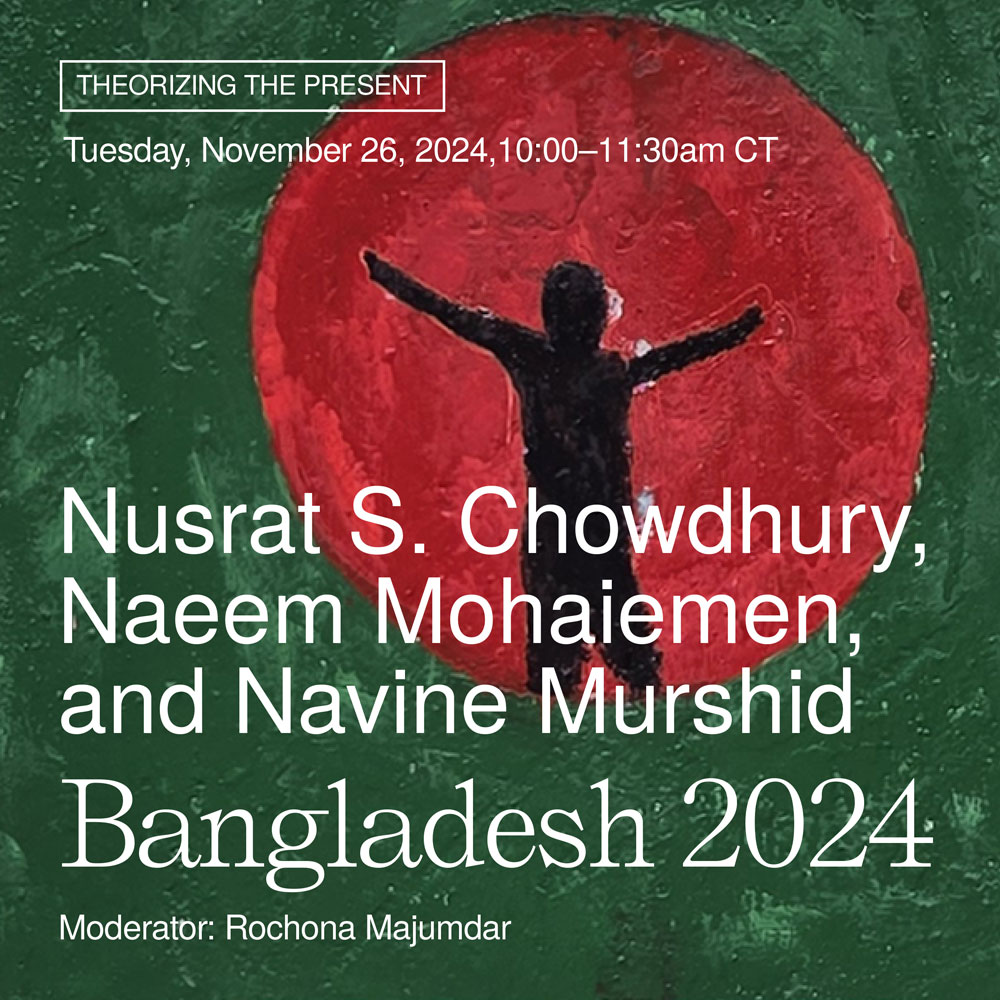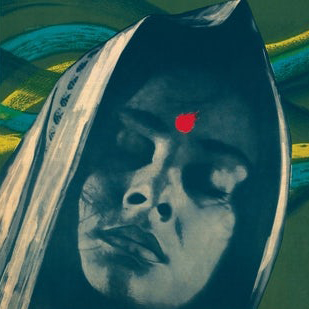Categories
Nusrat S. Chowdhury, Naeem Mohaiemen, and Navine MurshidBangladesh 2024
Tuesday, November 26, 2024, 10:00–11:30am CTAn extraordinary set of events in Bangladesh in July and August 2024 resulted in the collapse of an authoritarian regime. Angry students steered a revolt that turned their dissatisfaction with public job reservation policies into a one-point demand for the resignation of the prime minister. The speed and manner in which the events unfolded were unparalleled, even though popular uprisings have a longer genealogy in Bangladesh. The questions around history, democracy, and geopolitics that July 2024 have spectacularly revived bring older tensions to the fore that have implications for the political future of Bangladesh and the larger region.
This conversation features three scholars of Bangladeshi history, politics, and popular culture who will discuss the July Uprising and share their insights into its immediate and long-term significance. 3CT fellow Rochona Majumdar will moderate.
This event is free and open to the public. Registration is required, and the link to the Zoom webinar will be sent in the confirmation email. Please email us at ccct@uchicago.edu if you require any accommodations to enable your full participation.
Nusrat S. Chowdhury is Associate Professor of Anthropology at Amherst College. She studies and teaches on topics such as protest, popular sovereignty, and political communication. Her first book, Paradoxes of the Popular: Crowd Politics in Bangladesh (Stanford University Press, 2019), is an anthropology of crowds, a permanent fixture in South Asian democratic life. Her current book project explores the concept of sacrifice in relation to development megaprojects in Bangladesh by looking closely into the role and the ruse of language—of rumor, policies, politics, and international law. This new work is situated within a wider field of the philosophy of postcolonial development.
Naeem Mohaiemen is an Associate Professor of Visual Arts at Columbia University and Head of Photography Concentration, School of Arts, Columbia University. He combines films, photography, drawings, and essays to research forms of utopia-dystopia (families, borders, architecture, and uprisings), beginning from Bangladesh’s two postcolonial markers (1947, 1971) and then radiating outward to transnational alliances and collisions. Mohaiemen is author of Midnight’s Third Child (Nokta: 2023) and Prisoners of Shothik Itihash (Kunsthalle Basel: 2014), and co-editor with Eszter Szakacs of Solidarity Must Be Defended (Tranzit: 2023). Monographs on his films include What We Found After You Left (Power Plant, 2021).
Navine Murshid is Associate Professor of Political Science at Colgate University and the author of India’s Bangladesh Problem: The Marginalization of Bengali Muslims in Neoliberal Times (Cambridge University Press, 2023) and The Politics of Refugees in South Asia: Identity, Resistance, Manipulation (Routledge, 2013). Her current research is on Rabindrik sensibilities among middle-class Bangladeshis. Her research also focuses on the Rohingya refugee population in Bangladesh and the political economy behind regimes of protection and the selective and strategic sympathy that is afforded to refugees. In addition to scholarly publications, she frequently contributes to public scholarship in the form of public talks and newspaper articles in Bangladesh, India, and the United States.
Rochona Majumdar is a historian of modern India. She is Professor and Chair of the Department of South Asian Languages and Civilizations, and Professor of Cinema and Media Studies, at the University of Chicago. She is a faculty associate in the Department of History and the Center for the Study of Gender and Sexuality. Majumdar serves on the board of the Nicholson Center for British Studies and is a faculty fellow at the Chicago Center for Contemporary Theory. Her writings span histories of gender, marriage, and family in modern India, postcolonial history and theory, and histories of Indian cinema. Her recent book, Art Cinema and India’s Forgotten Futures (Columbia, 2021; Penguin Random House, 2021), makes a powerful case for considering “art films” as a new mode of apprehending postcolonial history.





